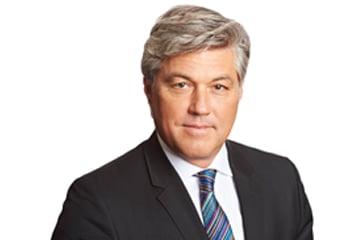
A Court of Appeal judge may have dealt a fatal blow to the attempts of Ecuadorian villagers to collect a $9.5-billion judgment against Chevron from an Ontario subsidiary. Justice Gloria Epstein has ordered the plaintiffs to post more than $900,000 in security for costs to Chevron Corporation and its seventh-level subsidiary based in Ontario, Chevron Canada Limited.

A Court of Appeal judge may have dealt a fatal blow to the attempts of Ecuadorian villagers to collect a $9.5-billion judgment against Chevron from an Ontario subsidiary.
Justice Gloria Epstein has ordered the plaintiffs to post more than $900,000 in security for costs to Chevron Corporation and its seventh-level subsidiary based in Ontario, Chevron Canada Limited.
Lawyers say this latest decision might be the last chapter in a long legal battle in Yaiguaje v. Chevron Corporation.
“There’s a good chance I’m guessing they might not come up with the $1 million to post to proceed with the appeal,” says John Polyzogopoulos, a partner with Blaney McMurtry LLP, who was not involved in the case.
“I don’t know whether the lawyers will be funding the $1-million security for costs order or if they have some other arrangements in place. I suspect going to the villagers in Ecuador is a non-starter in terms of coming up with the $1 million. So it may be the end.”
The 47 plaintiffs, who represent 30,000 Ecuadorian villagers, have claimed their region suffered extensive environmental damage from pollution caused by the company. Chevron has argued the $9.5-billion Ecuadorian judgment was a product of fraud, citing a U.S. district judge’s decision in 2014 that corruption was used to obtain the judgment.
As Chevron has not paid the judgment and has no assets in Ecuador, the plaintiffs filed an action in Ontario, seeking remedy from the subsidiary.
Superior Court Justice Glenn Hainey dismissed the action on a summary judgment motion. In that decision, Hainey found the assets of Chevron Canada Limited could not be seized pursuant to the Execution Act and that the subsidiary’s corporate veil could not be pierced.
Hainey determined that the assets of the subsidiary could not be seized to satisfy the foreign judgment, as it is not an asset of the parent company.
Chevron then brought its motion for security for costs after the plaintiffs were granted leave to appeal Hainey’s decision.
In response to the motion, the plaintiffs’ lawyers argued the matter should be approached differently because it is part of an action for enforcement of a foreign judgment and that the original action amounts to a class action lawsuit.
Epstein, however, rejected these arguments.
The judge found the plaintiffs should post security for costs, as they had not proven they did not have the funds, and they failed to show that their claim is not “plainly devoid” of merit.
“In my view, the Ecuadorian plaintiffs have not demonstrated that their appeal has a good chance of success,” she wrote in the decision. “The motion judge held that, absent a piercing of the corporate veil, the shares and assets of Chevron Canada are not available for execution and seizure to satisfy the Ecuadorian judgment against Chevron. That conclusion is unlikely to be overturned.”
Epstein said that while the plaintiffs do not face an impossible task in their appeal, it is unlikely they will be successful, as they are challenging long-standing fundamental principles of corporate law.
Gavin Tighe, a senior partner with Gardiner Roberts LLP, who was not involved in the case, says to be successful on the appeal, the appellants would have to prove the parent company had complete control of the subsidiary. They would also have to prove that the subsidiary only exists for fraudulent purposes, he says.
“If that’s the test — which the Court of Appeal says it is — then those two gates are almost insurmountable, and the plaintiff in this particular case is going to need to come up with $1 million to test it,” he says.
The plaintiffs are now looking to get the requirement for security for costs to be set aside through a motion that will be heard by a three-judge panel on Oct. 10.
In their factum, they said Epstein failed to consider the novelty and public importance of the action.
“Chevron has contaminated the applicants’ lands and waters imperilling their livelihood and health,” the factum said. “Chevron has isolated the applicants from their funders and their U.S. lawyers by carrying out their expressed vow to ‘fight this case until hell freezes over and then to fight it out on the ice.’”
The plaintiffs argued that an indebted person is not entitled to security for costs from a creditor and that an enforcement action of a foreign judgment should be treated differently than others. They also contended that security of costs should not be required where the actions of the defendant have caused hardship to the claimant, and that Epstein had raised a procedural barrier to the action that went against an earlier decision in the case concerning jurisdiction at the Supreme Court of Canada.
Lawyers for the plaintiffs asked that if the requirement for security for costs is not set aside, the amount be reduced to reflect the costs of the appeal alone, which would be $80,000.
Morgan Crinklaw, a spokesman for Chevron, said the court was right to find the defendants were entitled to security for costs as the prevailing parties in the lower court.
“The Ecuadorian judgment, which the plaintiffs are seeking to enforce in Canada, has been found by the U.S. courts to be the product of fraud and unenforceable in the United States,” he said in an emailed statement. “The plaintiffs are trying to use the Canadian court system to legitimize the fraudulent Ecuadorian judgment.”